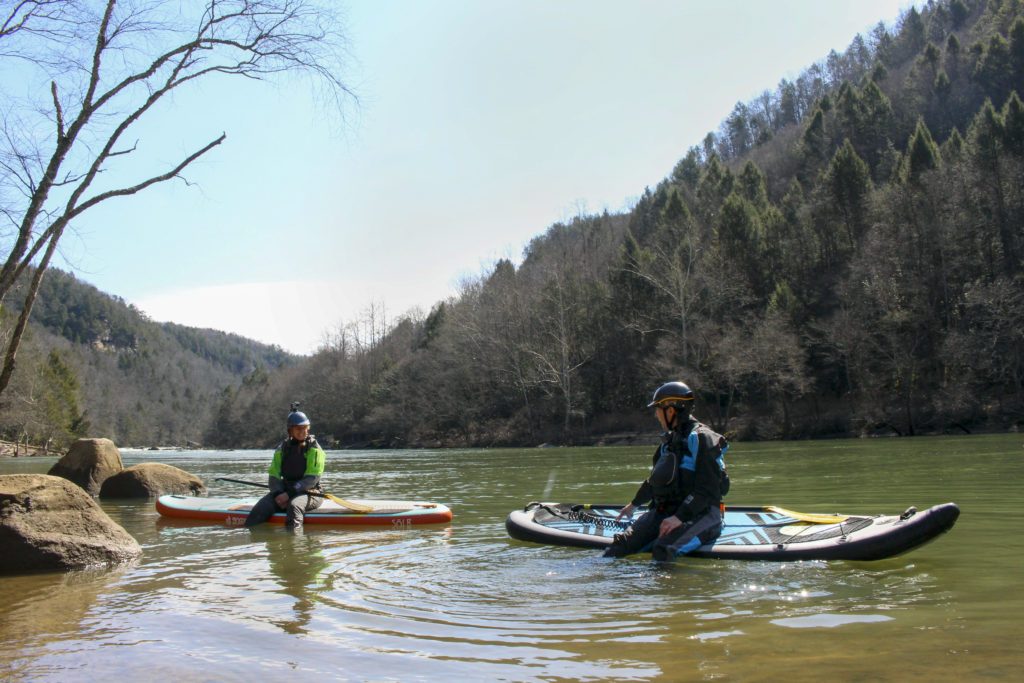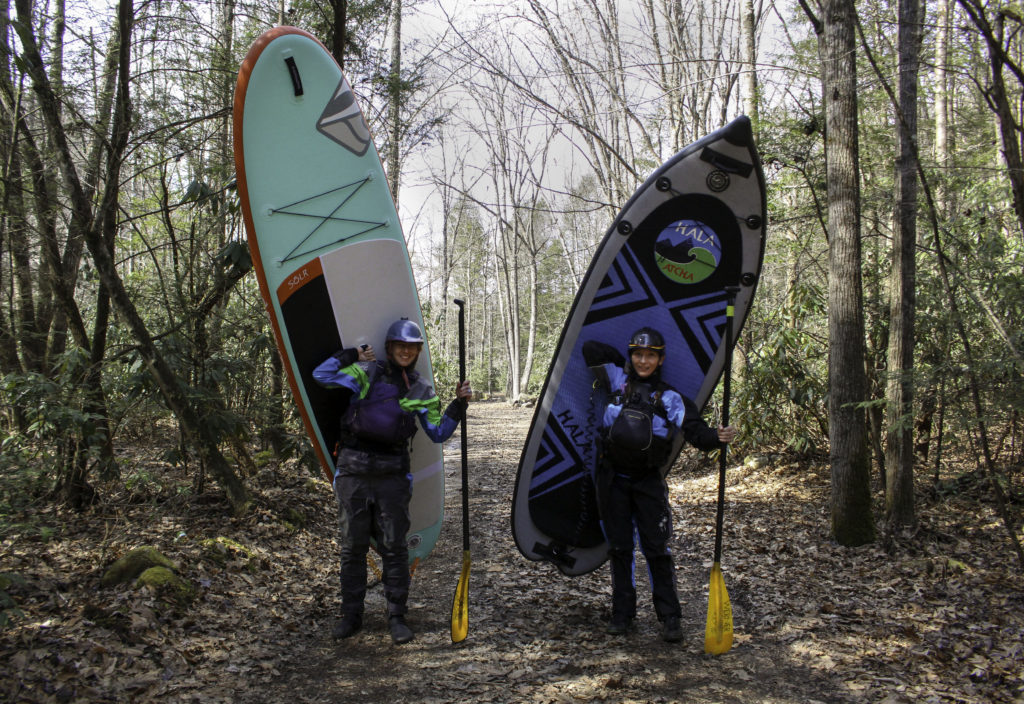By Kristian Davis
Located in the heart of West Virginia—and within a short drive of more than five states—lies Fayetteville, a small town full of beautiful rivers, vibrant shopping areas, unique restaurants and an ever-growing outdoor industry. Fayetteville has always been known for its amazing rafting and kayaking trips, as well as climbing and biking areas. However, amongst the rafts and kayaks normally seen in the area, stand-up paddle boards have started to take over the water.
While it may sound more like something you do while vacationing at the beach than a West Virginia pastime, stand-up paddle boarding, or SUP, has become a popular sport not only on the beaches of Hawaii but also on the winding rivers and white waters of West Virginia.
Melanie Seiler, executive director for Active Southern West Virginia, was born and raised in Fayetteville with a family of rafters and has been river guiding for the past 20 years. However, when Seiler was looking for a little more adventure, she took to SUP for the first time and has been a part of the sport since its start about 10 years ago.
“When I first tried out paddle boarding, it was interesting the kind of balance that was required and the skill needed to navigate just a little bit of moving water,” she says. “It took my experience as a river guide and added another challenge to the concept of running white water on a paddle craft.”

Seiler on the Gauley River.
Seiler has since been to numerous paddling events and races on the East and West coasts, but her favorite place to paddle is always back home in West Virginia.
“I really enjoy going to Summersville Lake to paddle around the tall cliffs,” she says. “On the Gauley River there are great places to surf on the river waves, and there are Class I and Class II sections of the New River that are high water with big rolling waves.”
Meghan Roberts, owner and operator of Mountain Surf Paddle Sports, also shares Seiler’s passion for SUP. Originally from Buffalo, NY, Roberts moved to West Virginia for the thrilling white water to become a river guide.

Roberts (left) and Seiler (right).
However, it wasn’t until 2008 while she was living in Hong Kong that Roberts first laid eyes on a paddle board. Initially, she thought the sport seemed lackluster.
“I like high-adventure stuff,” says Roberts, “But eventually I started to see people do white water stand-up paddle boarding and actually surf on the river with paddle boards, and that really sparked my interest and made me want to do it more.”
Although paddle boarding can be a high-intensity sport, it can also be the opposite. The fascinating thing about paddle boarding is that it is something anyone can try because of its unique versatility and rewarding experiences. However, beginners should always start out on flat-water lakes, review safety protocols and seek instruction when ready to move on to something more challenging.
“If you set yourself up for success, then you’ll be golden,” says Roberts.

Besides not being near an ocean, Fayetteville is full of Class IV rapids, gorgeous lakes and flat-water rivers that makes the area a hub for paddle boarders and adventure seekers everywhere. The possibilities are endless with a paddle board, especially when combined with the waters of West Virginia.
“I think paddle boarding adds to the uniqueness of this area and to all the different things that you can do while you’re here,” says Seiler. “I feel a lot of pride for this state because we have world-class destinations right here.”
About the Author

Kristian Davis is a senior journalism and photography student at West Virginia University (WVU). She serves as a staff photographer and culture writer for The Daily Athenaeum and as the photographer of WVU’s Public Relations Student Society of America. After graduation, Davis hopes to work for National Geographic or the National Parks Service. When she’s away from her camera, she also enjoys playing video games, being outdoors and learning about environmental science.








